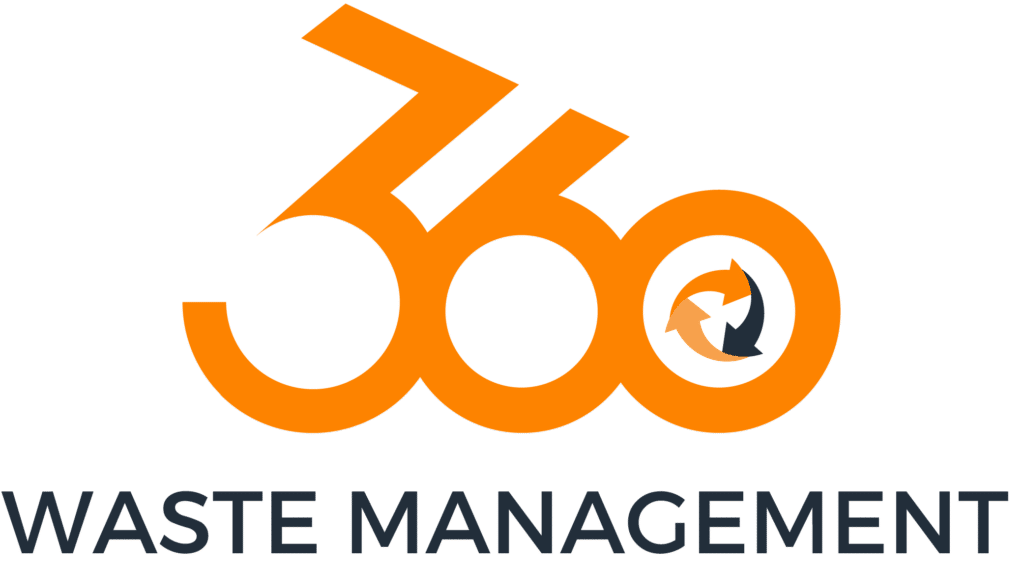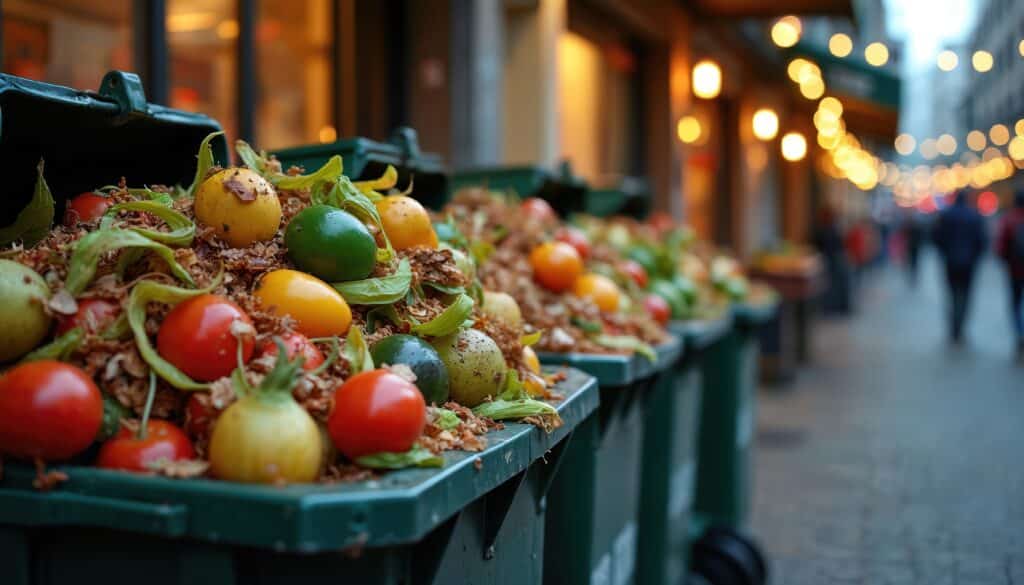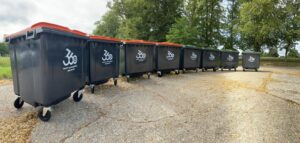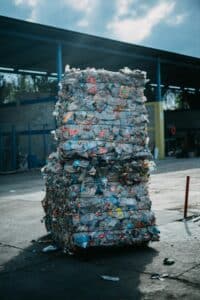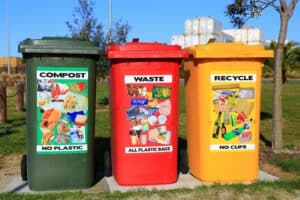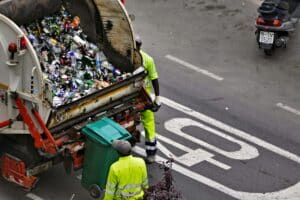The UK’s new Simpler Recycling rules came into force in March 2025, changing how all businesses with 10 or more employees must handle their waste. While many companies are already compliant, others are still adapting – and confusion about the finer details is common.
At 360 Waste Management, we’ve been helping companies across London, the South East and the wider UK transition smoothly with free audits, local drivers and tailored commercial food waste collections. Here, we’ve put together an FAQ recap to make sure you’re on track.
1. What Are the Simpler Recycling Rules?
The Simpler Recycling rules are part of the government’s wider plan to reduce landfill, improve recycling rates and create a more consistent system across the UK. For businesses, that means new legal duties on how waste is stored, separated and collected.
Since March 2025, any workplace with 10 or more staff must:
- Separate food waste from general waste.
- Provide clearly labelled bins for dry mixed recycling (DMR), which covers paper, card, cans and plastics.
- Ensure all waste is collected by a licensed waste management company.
Put simply, the days of “one bin for everything” are over. Businesses are now required to take greater responsibility for the waste they generate. Failure to comply can result in fines, so it’s important to make sure your systems and providers are set up correctly.
2. How Can I Make Sure I’m Compliant with the Simpler Recycling for Businesses Rules?
The rules may sound daunting, but compliance is straightforward once the right steps are in place. The first step is to review your current waste streams. Are food scraps, recyclables and general waste being mixed together? If so, you’ll need a clearer system.
Compliance requires:
- Separate bins for food waste, recyclables and general waste.
- A licensed carrier to handle catering waste collections and recycling.
- Waste transfer documentation to prove your collections are legal.
We make this process simple. We provide free bins in a range of sizes (120L–1100L) for food, DMR and general waste, plus flexible waste collection schedules that fit your business hours. Whether you run a café, office or hotel, we’ll tailor a plan that keeps you compliant and avoids disruption.
3. Who Has to Follow the Simpler Recycling Rules?
The regulations apply to all non-domestic premises with 10 or more employees. That means it isn’t just restaurants and hotels – offices, retailers, schools, hospitals and care homes are included too.
Even small amounts of food waste count. If your workplace produces more than 5kg of food waste per week (roughly one small bin bag), you must arrange a separate commercial food waste collection. This catches many businesses by surprise – things like tea bags, coffee grounds and leftover staff lunches quickly add up.
Smaller businesses (with under 10 staff) will join the scheme in 2027, but for many organisations, the rules are already in force.
4. What Counts as Business Food Waste?
Business food waste covers anything discarded during food preparation, service or staff catering. That includes:
- Kitchen prep scraps such as peelings or offcuts.
- Unsold stock past its use-by date.
- Leftovers from buffets, meetings or staff kitchens.
- Plate scrapings from restaurants or hotels.
- Everyday items like tea bags and coffee grounds.
It’s not just restaurants and caterers who need to act. Offices with canteens, schools, healthcare facilities and retail outlets are also required to separate this waste. If it’s edible or was once edible, it should go in your food waste bin.
5. What Happens if My Business Isn’t Compliant?
If you don’t follow the rules, you could face enforcement action from your local council or the Environment Agency. This could mean fines, compliance notices, or in serious cases, prosecution.
Beyond penalties, non-compliance can also harm your reputation. Customers, clients and investors increasingly expect businesses to meet sustainability standards. Falling behind doesn’t just risk fines – it could also cost you contracts, credibility and customer loyalty.
The good news is that compliance isn’t expensive. With the right waste management provider, many businesses actually save money by reducing contamination, cutting waste disposal costs and recycling more efficiently.
6. What Happens to Food Waste Collected Separately?
Under the Simpler Recycling rules, food waste must no longer be sent to landfill. Instead, it is recycled through composting or anaerobic digestion (AD).
- Composting breaks down food into nutrient-rich soil improver.
- Anaerobic digestion uses natural processes to create renewable energy and fertiliser.
This process significantly reduces methane emissions from landfill, helping the UK meet its net-zero targets. By working with licensed food waste management companies, businesses can be sure their food waste is treated responsibly and sustainably.
At 360 Waste Management, we divert all commercial food waste disposal through approved facilities, giving you peace of mind and supporting your ESG reporting.
7. What Do Businesses in London Need to Know About Food Waste?
London businesses face some of the biggest challenges when it comes to food waste management. High waste volumes, limited bin storage, strict collection times and busy streets make compliance tricky.
That’s why we’ve developed flexible, city-ready solutions. Our food waste management London service includes:
- Smaller bin options for tight spaces.
- Early morning or late-night collections to suit access restrictions.
- Local drivers who understand borough-specific rules.
From restaurants in Soho to hotels in Kensington and offices in Canary Wharf, our hospitality waste management and restaurant waste collections keep London businesses compliant without disruption.
8. What Are the Benefits of Following Simpler Recycling?
The main benefit is avoiding fines – but there’s much more to gain:
- Lower costs: Recycling is cheaper than landfill, so separating waste can reduce your bills.
- Operational efficiency: A clear system means less contamination and fewer missed collections.
- Brand reputation: Customers increasingly choose businesses with green credentials.
- Sustainability impact: Recycling reduces your carbon footprint and diverts waste from landfill.
For many businesses, Simpler Recycling is not just about compliance – it’s an opportunity to cut costs and strengthen brand image at the same time.
9. How Can 360 Waste Management Help with Simpler Recycling?
We’re more than just another waste management company. We act as a compliance partner, helping businesses stay on top of changing rules while saving money and improving sustainability.
Our commercial waste management services include:
- Free site audits to check compliance.
- Free supply of food, recycling and general waste bins.
- Flexible catering waste collections for hotels, restaurants, schools and offices.
- Transparent pricing with no hidden extras.
- Local drivers across London, the South East and UK-wide.
Still Unsure About Your Setup?
The Simpler Recycling rules are now in force – if you’re not confident your business is compliant, now is the time to act.
Contact 360 Waste Management today for a free waste audit or consultation. Call 01892 240541 or request a quote.
